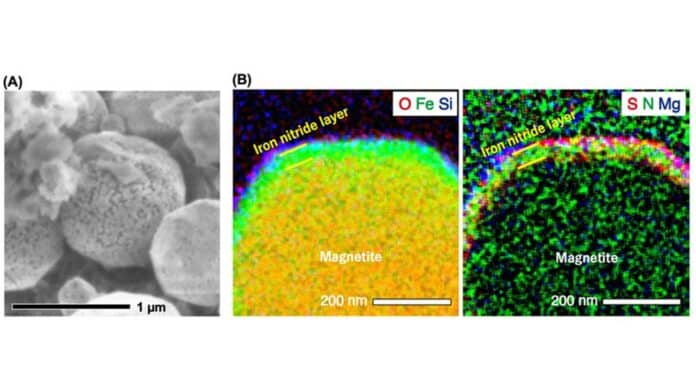Ammonium salts and other nitrogen compounds are common in material formed in far-from-the-sun regions, but nothing is known about how they are transported to the Earth’s orbit.
According to a new study by an international team of researchers, nitrogen may have been brought to the near-Earth region in the early solar system by micrometeorites originating from frozen planets in the outer Solar System.
Results point to the possibility that more nitrogen molecules than previously thought were carried close to Earth, possibly acting as the building blocks for life on our planet.
By analyzing the signs of space weathering in Ryugu samples, the researchers hope to uncover hints about the components that are now entering Earth’s orbit. Using an electron microscope, they discovered that the surface of the Ryugu samples is covered in small minerals made of iron and nitrogen (iron nitride: Fe4N).
Toru Matsumoto, lead author of the study and assistant professor at Kyoto University, said, “We proposed that tiny meteorites, called micrometeorites, containing ammonia compounds were delivered from icy celestial bodies and collided with Ryugu. The micrometeorite collisions trigger chemical reactions on magnetite and lead to the formation of the iron nitride.”
Iron nitride, which is made up of iron and oxygen atoms, was seen on the surface of magnetite. The sun’s hydrogen ions, or solar wind, and the influence of micrometeorite heating remove oxygen atoms from magnetite’s surface when it is exposed to the space environment. These procedures produce metallic iron on the magnetite’s surface, which effortlessly combines with ammonia to create iron nitride under the right circumstances.
Journal Reference:
- Matsumoto, T., Noguchi, T., Miyake, A. et al. Influx of nitrogen-rich material from the outer Solar System indicated by iron nitride in Ryugu samples. Nat Astron (2023). DOI: 10.1038/s41550-023-02137-z
